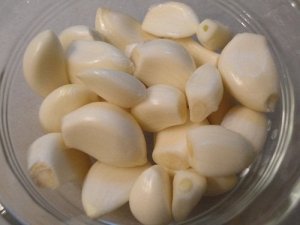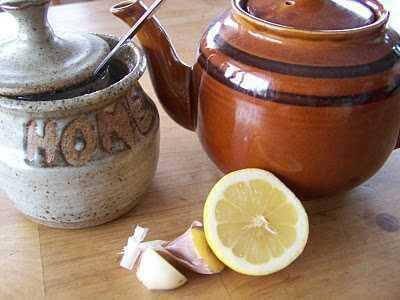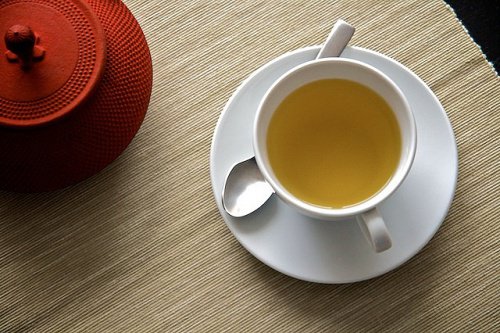Benefits of Drinking Garlic Tea Every Morning!


Written and verified by psychologist Valeria Sabater
Despite its unpleasant flavor, garlic tea is a home remedy that many people believe is good for your health because of certain compounds found in garlic.
It is a well-known fact that garlic was very common in ancient Greece and that it was used, above all, to strengthen the body, to improve one’s general health. Some people believed that garlic tea was energizing and revitalizing.
Do you want to try it? If so, keep reading for more information and a recipe.
The incredible properties of garlic tea
As we may all know, it is not easy to eat a garlic clove in the morning on an empty stomach. However, there is an interesting option that is simple: garlic tea.
While there’s no scientific evidence that garlic tea has any concrete health benefits, many people believe the following:
- It could help improve your heart health. It stimulates our circulation, reduces the bad cholesterol or LDL, it dilates the blood vessels and helps avoid arteriosclerosis.
- It helps improve your metabolism.
- Garlic tea provides vitamins A, B1, B2 and C as well as some excellent antioxidants which help care for your vision and skin and prevents premature aging.
- It’s an excellent natural antibiotic. In fact, people say that Greek soldiers drank garlic tea after their battles in order to prevent infections.
We recommend you read:
6 Tips to Boost Metabolism and Lose Weight
How to prepare garlic tea?

Ingredients
- One garlic clove
- One glass of water (200 ml or 6.5 ounces)
- A little bit of grated ginger (3 g or 0.1 ounces)
- 1 tablespoon of lemon juice (15 ml or 0.5 ounces)
- 1 tablespoon of honey (25 g or 0.9 ounces)
Preparation
- Boil a glass of water.
- While you wait for it to boil, cut the garlic clove into very small pieces, or mince it. Whichever you prefer. In this way, the benefits of its properties will be best obtained during cooking.
- Once the water begins to boil, you can add the 3 grams (0.1 ounces) of grated ginger and the minced garlic. Let it cook for at least 15 or 20 minutes. After this, simply turn off the heat and let the infusion sit for about 10 more minutes.
- Strain the contents and keep the water which was infused during the cooking process. Now you only need to add a tablespoon of natural lemon juice and a tablespoon of honey to sweeten this delicious infusion or tea made from garlic.
- You do not need to worry about there being a bad odor from the garlic. By including the ginger and lemon during cooking, the odor will disappear completely in your mouth.
- Drink in moderation.
We recommend you read:
When should I drink it?

According to popular belief, you should drink this tea every morning, on an empty stomach, right after you wake up.
Supposedly, this tea provides the same benefits as just eating a clove of garlic on an empty stomach, although some people believe that adding ginger, lemon, and honey makes it even better for your health.
In conclusion
While there’s no scientific evidence proving that garlic tea is actually good for your health, many people include it in their diet. At the very least, it’s a hydrating beverage that is out of the ordinary.
Of course, if you really want to improve your health or just live a healthier lifestyle, talk to your doctor and follow their recommendations.
All cited sources were thoroughly reviewed by our team to ensure their quality, reliability, currency, and validity. The bibliography of this article was considered reliable and of academic or scientific accuracy.
- AA. VV. (2002). Diccionario integral de Plantas Medicinales. Madrid: RBA Libros.
- Balch, P. A. (2000). Prescription for Nutritional Healing, 3ª ed. New York: Avery.
- Salunkhe, D. K., and Kadam, S. S. (1998). Handbook of Vegetable Science and Technology. New York: Marcel Dekker.
- Richard S. Rivlin, Historical Perspective on the Use of Garlic, The Journal of Nutrition, 131(3), 951S–954S, https://doi.org/10.1093/jn/131.3.951S
- Ebrahimi, T., Behdad, B., Abbasi, M.A. et al. (2015). RETRACTED ARTICLE: High doses of garlic extract significantly attenuated the ratio of serum LDL to HDL level in rat-fed with hypercholesterolemia diet. Diagnostic Pathology, 10(74). https://doi.org/10.1186/s13000-015-0322-0
- Majewski, M. (2014). Allium sativum: facts and myths regarding human health. Roczniki Państwowego Zakładu Higieny, 65(1),1-8. https://www.researchgate.net/publication/263431830_Allium_sativum_facts_and_myths_regarding_human_health
- Garba, I., Umar, A. I., Abdulrahman, A. B., Tijjani, M. B., Aliyu, M., Zango, U. U. and Muhammad, A. (2014). Phytochemical and antibacterial properties of garlic extracts. Bayero Journal of Pure and Applied Sciences, 6(2), 45-48. http://dx.doi.org/10.4314/bajopas.v6i2.10
- Guo, J. J., Kuo, C. M., Chuang, Y. C., Hong, J. W., Chou, R. L. and Chen, T. I. J. J. (2012). The effects of garlic-supplemented diets on antibacterial activity against Streptococcus iniae and on growth in orange-spotted grouper. Epinephelus coioides. Aquaculture, 364–365, 33-38. https://doi.org/10.1016/j.aquaculture.2012.07.023
- Mozaffari Nejad, A. S., Shabani, S., Bayat, M., and Hosseini, S. E. (2014). Antibacterial Effect of Garlic Aqueous Extract on Staphylococcus aureus in Hamburger. Jundishapur journal of microbiology, 7(11), e13134. https://doi.org/10.5812/jjm.13134
This text is provided for informational purposes only and does not replace consultation with a professional. If in doubt, consult your specialist.








